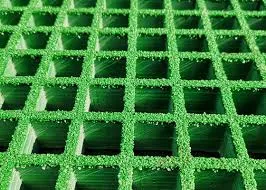
-
 Afrikaans
Afrikaans -
 Albanian
Albanian -
 Amharic
Amharic -
 Arabic
Arabic -
 Armenian
Armenian -
 Azerbaijani
Azerbaijani -
 Basque
Basque -
 Belarusian
Belarusian -
 Bengali
Bengali -
 Bosnian
Bosnian -
 Bulgarian
Bulgarian -
 Catalan
Catalan -
 Cebuano
Cebuano -
 China
China -
 China (Taiwan)
China (Taiwan) -
 Corsican
Corsican -
 Croatian
Croatian -
 Czech
Czech -
 Danish
Danish -
 Dutch
Dutch -
 English
English -
 Esperanto
Esperanto -
 Estonian
Estonian -
 Finnish
Finnish -
 French
French -
 Frisian
Frisian -
 Galician
Galician -
 Georgian
Georgian -
 German
German -
 Greek
Greek -
 Gujarati
Gujarati -
 Haitian Creole
Haitian Creole -
 hausa
hausa -
 hawaiian
hawaiian -
 Hebrew
Hebrew -
 Hindi
Hindi -
 Miao
Miao -
 Hungarian
Hungarian -
 Icelandic
Icelandic -
 igbo
igbo -
 Indonesian
Indonesian -
 irish
irish -
 Italian
Italian -
 Japanese
Japanese -
 Javanese
Javanese -
 Kannada
Kannada -
 kazakh
kazakh -
 Khmer
Khmer -
 Rwandese
Rwandese -
 Korean
Korean -
 Kurdish
Kurdish -
 Kyrgyz
Kyrgyz -
 Lao
Lao -
 Latin
Latin -
 Latvian
Latvian -
 Lithuanian
Lithuanian -
 Luxembourgish
Luxembourgish -
 Macedonian
Macedonian -
 Malgashi
Malgashi -
 Malay
Malay -
 Malayalam
Malayalam -
 Maltese
Maltese -
 Maori
Maori -
 Marathi
Marathi -
 Mongolian
Mongolian -
 Myanmar
Myanmar -
 Nepali
Nepali -
 Norwegian
Norwegian -
 Norwegian
Norwegian -
 Occitan
Occitan -
 Pashto
Pashto -
 Persian
Persian -
 Polish
Polish -
 Portuguese
Portuguese -
 Punjabi
Punjabi -
 Romanian
Romanian -
 Russian
Russian -
 Samoan
Samoan -
 Scottish Gaelic
Scottish Gaelic -
 Serbian
Serbian -
 Sesotho
Sesotho -
 Shona
Shona -
 Sindhi
Sindhi -
 Sinhala
Sinhala -
 Slovak
Slovak -
 Slovenian
Slovenian -
 Somali
Somali -
 Spanish
Spanish -
 Sundanese
Sundanese -
 Swahili
Swahili -
 Swedish
Swedish -
 Tagalog
Tagalog -
 Tajik
Tajik -
 Tamil
Tamil -
 Tatar
Tatar -
 Telugu
Telugu -
 Thai
Thai -
 Turkish
Turkish -
 Turkmen
Turkmen -
 Ukrainian
Ukrainian -
 Urdu
Urdu -
 Uighur
Uighur -
 Uzbek
Uzbek -
 Vietnamese
Vietnamese -
 Welsh
Welsh -
 Bantu
Bantu -
 Yiddish
Yiddish -
 Yoruba
Yoruba -
 Zulu
Zulu
Innovative Solutions for Efficient Storage with Compact Fiberglass Tanks
The Versatility of Small Fiberglass Tanks
In various industries, the need for reliable storage solutions is paramount. Small fiberglass tanks have emerged as a popular choice due to their durability, lightweight design, and versatility. Often utilized in agricultural, industrial, and domestic applications, these tanks provide a valuable option for storing liquids, chemicals, and other materials.
What are Small Fiberglass Tanks?
Small fiberglass tanks are storage units crafted from fiberglass-reinforced plastic. This composite material is composed of glass fibers embedded in a resin matrix, offering superior strength-to-weight ratios. The manufacturing process allows for custom shapes and sizes, making it possible to design tanks that meet specific requirements.
These tanks typically come in various capacities, ranging from a few gallons to several hundred, catering to different applications. The smooth surface and corrosion-resistant properties of fiberglass make these tanks ideal for storing water, fertilizers, chemicals, and even wastewater.
Advantages of Small Fiberglass Tanks
1. Corrosion Resistance Unlike metal tanks that are prone to rust and degradation, fiberglass tanks are highly resistant to corrosive substances, ensuring a long operational life. This quality is particularly crucial in environments where chemicals are stored.
2. Lightweight and Easy to Handle Fiberglass tanks are lighter than traditional metal or concrete options. This property simplifies transportation and installation, reducing labor costs and time.
3. Customizability Manufacturers can produce fiberglass tanks in various shapes and sizes to suit specific needs. This flexibility allows users to optimize their storage solutions according to available space and required capacity.
4. Low Maintenance These tanks typically require minimal maintenance due to their durable nature and resistance to weathering. A simple routine inspection is often enough to ensure optimal performance.
small fiberglass tanks

5. Environmental Benefits With increasing awareness of environmental issues, fiberglass tanks can be a more sustainable option for storage. They are generally made from recyclable materials and do not leach harmful substances into the environment.
Applications of Small Fiberglass Tanks
Small fiberglass tanks have found applications across several sectors
- Agriculture Farmers utilize these tanks for storing water, pesticides, and fertilizers. Their resistance to chemicals makes them suitable for managing agricultural inputs without the risk of contamination.
- Wastewater Management In wastewater treatment plants, small fiberglass tanks play a critical role in managing and treating liquids safely and efficiently. They can be used for both above-ground and underground applications.
- Industrial Use In various manufacturing processes, small fiberglass tanks are employed for storing solvents, chemicals, and other substances crucial to production. Their reliability helps ensure operational efficiency and safety.
- Residential Use Homeowners can benefit from small fiberglass tanks for applications like rainwater harvesting or as septic system components. Their robust design ensures longevity despite varying weather conditions.
Conclusion
The demand for efficient and reliable storage solutions continues to grow, and small fiberglass tanks offer an exceptional option for meeting these needs. With their unique properties, including corrosion resistance, lightweight construction, and the capacity for customization, these tanks can serve a wide range of applications across different industries. As businesses and individuals seek more effective ways to manage liquids and chemicals, small fiberglass tanks are poised to play an even more prominent role in the future. Their enduring advantages not only save time and resources but also contribute to a more sustainable approach to storage.
Latest news
-
Exploring the Benefits of Top Hammer Drifter Rods for Enhanced Drilling PerformanceNewsJun.10,2025
-
High-Precision Fiberglass Winding Machine for GRP/FRP Pipe Production – Reliable & Efficient SolutionsNewsJun.10,2025
-
FRP Pipes & Fittings for Shipbuilding - Corrosion-Resistant & LightweightNewsJun.09,2025
-
Premium FRP Flooring Solutions Durable & Slip-ResistantNewsJun.09,2025
-
Premium Fiberglass Rectangular Tanks Durable & Lightweight SolutionNewsJun.09,2025
-
Tapered Drill String Design Guide Durable Performance & UsesNewsJun.09,2025









